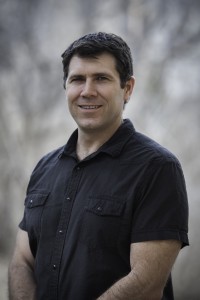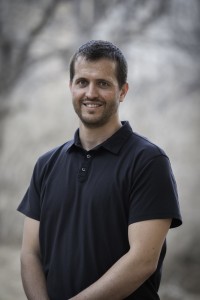 Brad Behnke is an associate professor in the Department of Kinesiology and a member of the Johnson Cancer Research Center at K-State. He earned his doctorate in physiology from K-State’s College of Veterinary Medicine and became a postdoctoral fellow in cardiovascular physiology at Texas A&M University and at the West Virginia University School of Medicine. In 2008, Behnke joined the faculty at the University of Florida and began studying integrative cancer physiology, with a focus on systemic manipulation of the tumor microenvironment to enhance treatment outcomes. While at Florida, he was a member of the University of Florida Cancer Center and Hypertension Center.
Brad Behnke is an associate professor in the Department of Kinesiology and a member of the Johnson Cancer Research Center at K-State. He earned his doctorate in physiology from K-State’s College of Veterinary Medicine and became a postdoctoral fellow in cardiovascular physiology at Texas A&M University and at the West Virginia University School of Medicine. In 2008, Behnke joined the faculty at the University of Florida and began studying integrative cancer physiology, with a focus on systemic manipulation of the tumor microenvironment to enhance treatment outcomes. While at Florida, he was a member of the University of Florida Cancer Center and Hypertension Center.
Behnke came back to K-State in 2014 and has been researching cardiovascular physiology, including the effects of cancer, microgravity, aging and heart failure. He has worked closely with NASA, investigating the effects of spaceflight and radiation on vascular function with subjects on the last several space shuttle missions. In 2016, Behnke and his colleagues will give keynote addresses about exercise and cancer at two major physiological conferences.
He has published more than 80 scientific articles, reviews and book chapters, and his work has appeared in the Journal of the National Cancer Institute, American Journal of Respiratory and Critical Care Medicine and more. Behnke was awarded a four-year American Cancer Society Research Scholar Grant for “Modulation of Tumor Oxygenation to Enhance Radiotherapy.”
 Steven Copp, an assistant professor in the Department of Kinesiology, studies how the autonomic nervous system and the cardiovascular system respond to exercise. Specifically, he is interested in understanding how the adjustments of those systems produce increases in blood pressure during exercise and why that increase is exaggerated in many forms of cardiovascular and metabolic disease. An exaggerated blood pressure response to exercise increases an individual’s risk of suffering a heart attack or stroke.
Steven Copp, an assistant professor in the Department of Kinesiology, studies how the autonomic nervous system and the cardiovascular system respond to exercise. Specifically, he is interested in understanding how the adjustments of those systems produce increases in blood pressure during exercise and why that increase is exaggerated in many forms of cardiovascular and metabolic disease. An exaggerated blood pressure response to exercise increases an individual’s risk of suffering a heart attack or stroke.
The current projects in the Cardio-Oncology and Autonomic Physiology Laboratory, which Copp co-directs with Brad Behnke, are designed to determine the precise feedback neural control signals from contracting skeletal muscle that are activated during exercise. The long-term goal of Copp’s research is to provide the foundation for treating exaggerated blood pressure responses to exercise.
Copp earned his bachelor’s, master’s and doctorate from K-State. He returned to the university to teach in January 2016. He is looking forward to settling back into the Manhattan community with his wife, Melissa, and their two young children.
